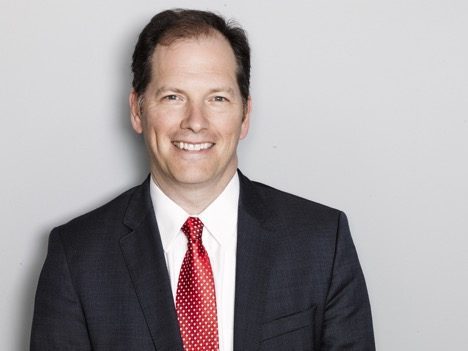When I am asked what I would like on my tombstone, my standard reply is, “He couldn’t sleep fast enough.” For my entire life, I’ve been afraid that I will miss something, so I cheat on sleep. I can’t tell you how many years I’ve been getting by on five to six hours of sleep.
After listening to “The Sleep Doctor,” I might have to reassess my sleeping habits.
Michael J. Breus, Ph.D., is a clinical psychologist and a diplomate of both the American Board of Sleep Medicine and a Fellow of the American Academy of Sleep Medicine. He was one of the youngest people to have passed the Board, at age 31, and with a specialty in sleep disorders, is one of only 168 psychologists in the world with these credentials and distinction. You may have seen him on a variety of TV shows like Oprah and the Dr. Oz Show, where he also serves on the clinical advisory board.
I invited Dr. Breus to speak to my Roundtable members at a reunion this spring in Arizona. He held us spellbound for 75 minutes and certainly did not put any of us to sleep!
I’ve always considered my sleep deprivation a badge of honor. This is bad! Very bad, according to Dr. Breus.
The Sleep Doctor said that adults who regularly get less than five hours or more than 10 hours of sleep have double the mortality rate. WOW! It’s also hazardous to your health and performance.
Dr. Breus dispelled the idea that everyone needs eight hours of sleep. Everyone has a Circadian rhythm, meaning we go through five 80-100- minute cycles of sleep each night – or at least we’re supposed to. That’s averages 540 minutes, or 7.5 hours of sleep.
The Sleep Doctor shared many secrets that I think you will find beneficial. For example, if you fall asleep almost immediately when your head hits your pillow, you are sleep deprived. It should take you 15-20 minutes to fall asleep. Ironically, the more sleep deprived you are, the more your brain tells you that you are doing fine.
If your alarm gets you up almost every morning, you are not getting enough sleep.
Dr. Breus said that about 75 percent of U.S. adults – over 70 million – have some form of a sleep problem. Roughly one-third of the people in the United States – about 40 million – suffer from some form of insomnia. Sleep apnea is number two. There are more than 88 sleep disorders.
He said sleep after an event helps you learn from an experience. If you are sleep deprived, your reaction time and muscle memory are reduced. The same holds true in business.
Light is the single biggest disruptor of sleep, according to the Sleep Doctor. Before the invention of the light bulb, people worked during the daytime and slept when it was dark. The light bulb changed everything. Use a night-light if you have to get up during the night. Bright light wakes up your system and makes it harder to go back to sleep. If you travel a lot, bring a sleep mask to keep things dark.
Dr. Breus joked that he has saved more marriages as a sleep specialist than a marriage counselor, just by getting couples back in bed together, sleeping comfortably. When you walk in your bedroom, you want to have an environment that is conducive to sleep.
He recommended these steps for better sleep:
- Stick to a schedule. Get up at the same time, and go to bed at the same time. You can sleep 30 minutes extra on weekends, but any more and your biological clock shifts. Your body loves regularity.
- Stop working at the same time every day. You have to take a mental break, as well as a physical break.
- Get ready for the next day so you aren’t running around in the morning.
- Have an electronics curfew with the exception of a TV.
- Meditation and prayer close to going to sleep is very beneficial. It helps calm down the brain.
- Exercise daily.
- Get 15 minutes of sunlight every morning.
- Journal what is bothering you 1-2 hours before going to bed. Get it out of your head.
- Maintain hydration.
As Snoopy said in the Peanuts cartoon, “A good laugh and a long sleep are the two best cures for anything.”
Mackay’s Moral: Wake up and discover the benefits of good sleep!

